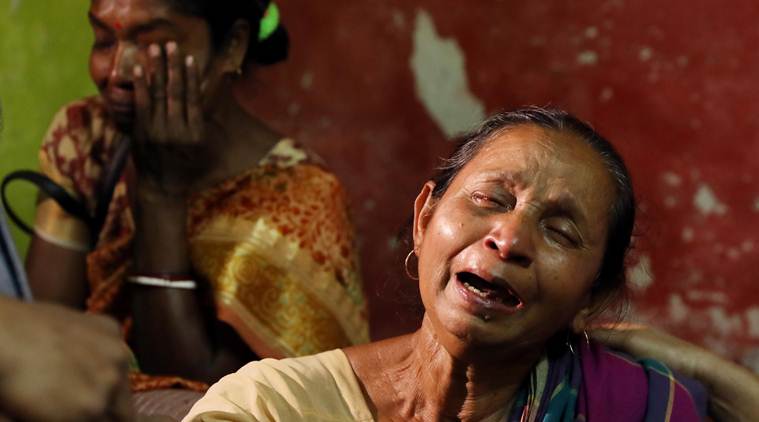The all-party meeting called Saturday against the backdrop of the Pulwama terror attack saw the political class putting up a united front, condemning terrorism “in all forms” and blaming Pakistan for supporting terrorism. The leaders vowed to speak in “one voice” to fight the challenges and came out with a measured resolution, providing elbow room to the government for deciding the next course of action.
Sources said barring Union minister Ramdas Athawale and Shiv Sena’s Sanjay Raut, who called for aggressive action, the others merely backed the government and refrained from provocative suggestions. There were no suggestions like snapping diplomatic ties with Pakistan, said a source present in the meeting. Athawale is learnt to have likened India to a tiger and Pakistan to a cat and called for war as a response. However, this was not taken seriously.
Speaking first, leader of the Opposition in Rajya Sabha Ghulam Nabi Azad asked home minister Rajnath Singh to urge PM Narendra Modi to convene a meeting of presidents of all major national and regional parties, a view supported by Derek O’Brien of the Trinamool Congress and D Raja of the CPI. But the Opposition did seek changes in the resolution drafted by the government, which they felt would have given the government a free hand.
“India has during the past three decades faced the menace of cross-border terrorism. Of late, terrorism in India is being actively encouraged by the forces across the border. India has displayed both firmness and resilience in dealing with these challenges. The entire nation speaks in one voice to express its determination to fight these challenges. Today we stand united in solidarity with our security forces in fighting terrorism and in defending the unity and integrity of India,” the resolution read.
Sources said a line about a “firm response” in the original resolution was edited out after opposition parties raised objections. Opposition sources said the draft resolution had also spoken of parties standing with security forces and “efforts of the central and state governments” but the mention of central and state governments was dropped from its final copy at the suggestion of the Trinamool Congress and the Congress.
Trinamool sources said “carte blanche” would effectively make the opposition parties not just party to any decision that is taken with respect to the neighbour, such as limited aggression or a full-scale war, but also any other internal decision, including even an emergency or a postponement of elections.
The resolution also condemned “terrorism in all forms and the support being given to it from across the border”, while standing with the families of the martyred soldiers in their hour of grief.
Also read: Pulwama terror attack: India should pressurise Pakistan PM Imran Khan to handover Masood Azhar, says Congress
Despite having been called at short notice by parliamentary affairs minister Narendra Singh Tomar, most parties barring the DMK and PDP sent representatives to the meeting. Among those present in the meeting were leader of the Opposition in Rajya Sabha Ghulam Nabi Azad, Congress MPs Anand Sharma, Jyotiraditya Scindia and KC Venugopal, National Conference’s Farooq Abdullah, Sanjay Raut of Shiv Sena, NCP chief and RS MP Sharad Pawar, Trinamool Lok Sabha and Rajya Sabha leaders Sudip Bandopadhyay and Derek O’Brien, respectively, Surender Nagar of SP, Satish Mishra of BSP, D Raja of CPI and TK Rangarajan of CPM.
A presentation by the CRPF at the start of the meeting explained what went wrong on that day after the convoy that had been on the road between Jammu and Srinagar for 12 and a half hours and was just 25 km from Srinagar.


